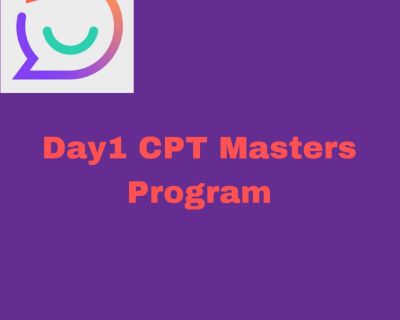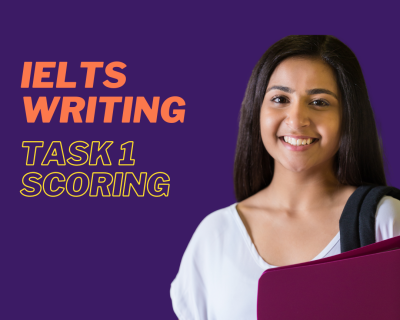As an IELTS aspirant, you’re well aware of the significance of the IELTS Reading Test in your overall band score. Excelling in this test requires a combination of essential skills, including comprehension, critical thinking, and time management.
However, one crucial factor that plays a significant role in your success is vocabulary development.
In this article, we’ll discuss the importance of vocabulary development for the IELTS Reading Test and provide valuable tips and strategies to enhance your lexical prowess.
Why is Vocabulary Development Important for the IELTS Reading Test?
IELTS Reading passages encompass a wide range of topics, often containing complex vocabulary and expressions. Here are some reasons why vocabulary development is vital for success in the IELTS Reading Test:
- Comprehension: A robust vocabulary enables you to comprehend complex texts better, ensuring that you can identify the main idea and supporting details effortlessly. This understanding helps you answer questions accurately and efficiently.
- Efficiency: Developing a strong vocabulary helps you read faster, as you won’t need to pause and look up words or struggle to understand their meaning. This, in turn, enables you to apply time management techniques effectively.
- Critical Thinking: A vast vocabulary allows you to think critically about the text and make inferences and predictions, which is crucial for answering certain question types in the IELTS Reading Test.
- Accuracy: A well-developed vocabulary helps you tackle different question types, such as True/False/Not Given, multiple-choice, and summary completion. Accurate understanding of the words and expressions used in the text and questions can boost your chances of selecting the correct answers.
Vocabulary Development Strategies for IELTS Reading
Here are some effective strategies to help you develop your vocabulary for the IELTS Reading Test:
1. Read, Read, and Read
Reading regularly is the best way to improve your vocabulary. Read various texts, such as newspapers, magazines, books, and online articles, to expose yourself to a diverse range of vocabulary.
Make a habit of reading about unfamiliar topics to broaden your lexical knowledge.
2. Maintain a Vocabulary Notebook
Create a vocabulary notebook where you jot down new words and expressions you encounter during your reading. Organize the words by category or theme, and review them frequently to reinforce your learning.
3. Learn Context Clues
Understanding the context in which a word is used can help you decipher its meaning. Use context clues to learn new words and phrases, as well as their possible synonyms and antonyms.
4. Use Flashcards and Apps
Create flashcards or use vocabulary apps to help you memorize new words and expressions. These tools can be a fun and interactive way to enhance your vocabulary.
5. Practice Skimming and Scanning
Skimming and scanning techniques allow you to quickly identify key vocabulary and expressions within a text. By practicing these techniques, you can become more adept at recognizing and understanding new words.
6. Engage in Conversations and Discussions
Participate in conversations and discussions in English with friends, family members, or language partners. Engaging in discussions on various topics will expose you to new vocabulary and help you practice using the words you’ve learned in context.
7. Learn Collocations and Word Families
Understanding collocations (words that frequently appear together) and word families (groups of words that share a common base or root) can help you build a more nuanced vocabulary. For example, if you learn the word “achievement,” also explore related words like “achieve,” “achievable,” and common collocations such as “significant achievement” or “personal achievement.”
8. Set Daily Vocabulary Goals
Set realistic daily goals for learning new words and expressions. For example, aim to learn five to ten new words each day. This consistent approach will help you steadily build your vocabulary over time.
9. Review and Test Yourself Regularly
Regularly review the words you’ve learned and test your knowledge using quizzes, crossword puzzles, or practice tests. This will reinforce your learning and help you retain new vocabulary more effectively.
Examples and Tips for Vocabulary Development in IELTS Reading
Here are some examples and tips to help you develop your vocabulary effectively for the IELTS Reading Test:
Example 1: Learning from Context
Consider this sentence from a reading passage: “The ambitious entrepreneur was determined to create a groundbreaking product that would revolutionize the industry.”
In this context, the word “groundbreaking” may be new to you. By looking at the surrounding words and understanding the context, you can deduce that “groundbreaking” means something innovative or pioneering.
Example 2: Using Flashcards
Create flashcards with a new word on one side and its meaning, along with an example sentence, on the other side. Review these flashcards regularly to reinforce your learning. For instance:
- Front: “Inevitable”
- Back: “Certain to happen; unavoidable. E.g., ‘The company’s failure was inevitable, given the poor management decisions.'”
Tips for Effective Vocabulary Development
- Read texts that challenge you: Choose reading materials slightly above your current language level to encounter new vocabulary and expressions.
- Be consistent: Dedicate time daily to vocabulary development, even if it’s just a few minutes.
- Use new words in context: Whenever you learn a new word, try to use it in a sentence or conversation to help you remember it better.
- Keep track of your progress: Regularly review your vocabulary notebook or flashcards and celebrate your progress as your lexical knowledge expands.
By focusing on vocabulary development, you’ll be better equipped to tackle the IELTS Reading Test with confidence. Combine these strategies with other IELTS Reading tips and techniques to maximize your preparation and achieve your desired score.
Remember, practice and consistency are key to mastering vocabulary for the IELTS Reading Test.
Happy learning!

















